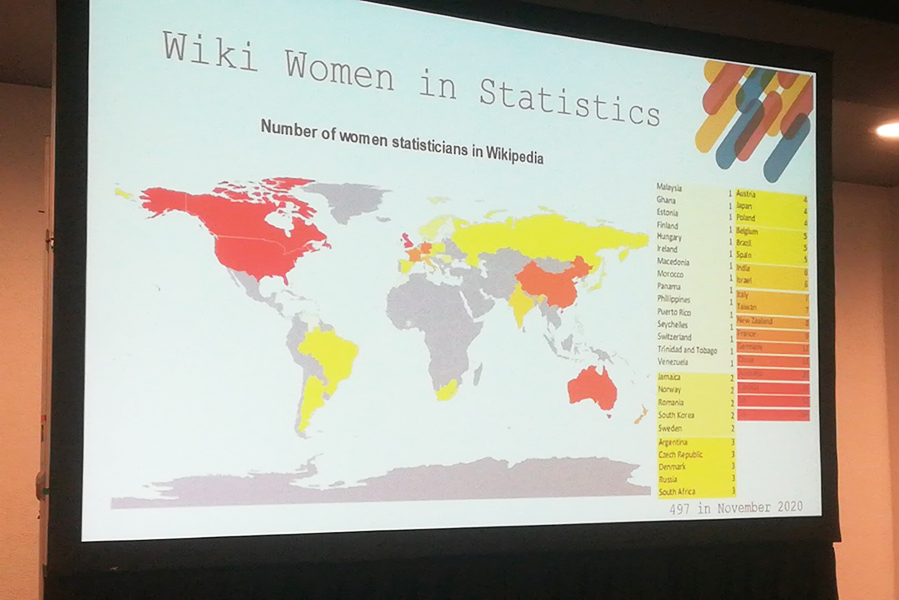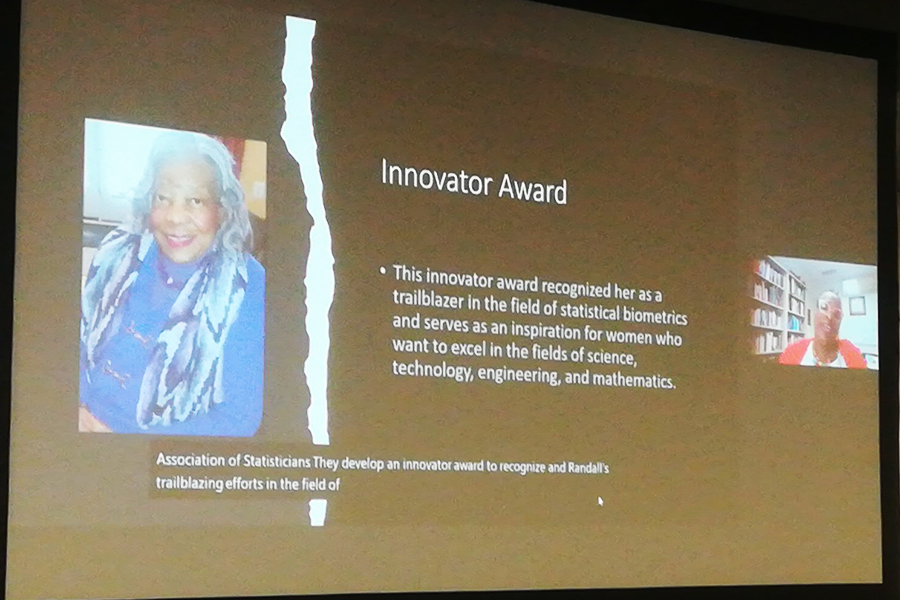Two sessions on day three of RSS 2021 conference focused on women in statistics in a historical context.
The ‘Women in British Statistics after Florence Nightingale' session that occurred directly after lunch was organised by the History of Statistics section.
John Aldrich of the University of Southampton spoke first on 'Women on the British statistical scene 1890-1960'. He gave an overview of women who held positions in statistics, principally the government statistical service, during this time period. He found that from 1890 there were many firsts of women in these roles followed by stagnation from 1920-1940 but then increasing representation of women in statistics from the 1940s onwards.
Alison Macfarlane (pictured above), talked about Clara Collet, one of the first female fellows of the RSS after Florence Nightingale. After being one of the first women to gain a degree from the University College London she was probably the first to gain an MA in 1888 in political economy at UCL. She went on to become involved in Charles Booth’s work on Life and labour of the people of London, conducting research on women's employment. In 1893, she was appointed to the Board of Trade to do similar work and in 1898 she presented a major paper on ‘The collection and utilisation of official statistics bearing on the extent and effects of the industrial employment of women’ to the RSS. She continued to work in the civil service until her retirement in 1920.This included providing support to the reforms introduced by the Liberal government of 1905 and documenting the impact of World War 1 on women’s occupations.
Joy Dobbs spoke about women in social survey official statistics, from the War Time Social Survey up to 2000. There was a higher than average representation of women in this area, increasing from 1970 to 2000. A number of women who started work in Social Survey went on to achieve prominent positions in government and elsewhere. Notable among these were Karen Dunnell and Jil Matheson, who went on to become National Statisticians and Siobhan Carey, the current Chief Executive of the Northern Ireland Statistics and Research Agency.
Later that afternoon, the History of Statistics and Young Statisticians' Section co-hosted a Wikipedia-edit-a-thon session to celebrate women and underrepresented communities in statistics and data science.
Altea Lorenzo Arribas presented an overview of statistical profiles of women and underrepresented minorities in Wikipedia and highlighted how much work is still needed to ensure the visibility of women in stats and data science across the world.

Daniel Arribas Hedo explained how to edit or create new Wikipedia articles by showing participants best practice, while Aura Wharton-Beck spoke about the life and work of Ann Randall, an African-American statistician and civil servant and a trailblazer of statistical biometrics.

Participants were then given the chance to edit a Wikipedia entry, armed with trustworthy references and sources.
Photos of the Edit-a-thon taken by the Young Statisticians Section.